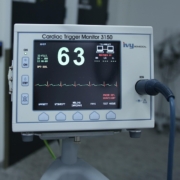Decoding Common Medical Advice: What to Trust and What to Question
In today’s fast-paced world, access to information is more abundant than ever, especially when it comes to health. However, this wealth of information can sometimes lead to confusion, misinterpretation, or even misinformation. One of the most critical lessons in managing one’s health is understanding the importance of seeking professional medical advice.
The Risks of Self-Diagnosis
With the advent of the internet, many individuals resort to online research to understand their symptoms. While it can be helpful to gather preliminary information, self-diagnosis can be misleading. Symptoms linked to one condition can overlap with others, leading to a misdiagnosis. For instance, a persistent headache might be dismissed as tension when it could be a sign of something more serious, like a neurological disorder.
Professional Expertise
Medical professionals are trained to interpret symptoms correctly, diagnose conditions accurately, and provide appropriate treatments. They consider a wide range of factors—medical history, lifestyle, genetics, and even psychological aspects. For example, a general practitioner can detect underlying conditions that a layperson might overlook, ensuring a holistic approach to a patient’s health.
Personalized Treatment Plans
When you seek medical advice, healthcare providers can tailor treatment plans specific to your individual needs. Personalized approaches consider unique factors and preferences, improving the likelihood of effective treatment. Whether it’s medication, physical therapy, or lifestyle changes, a professional’s guidance is essential to developing a suitable and safe plan.
Preventive Care and Early Detection
Regular consultations with healthcare providers allow for preventive care and early detection of potential health issues. Screening tests and routine check-ups can catch conditions like high blood pressure, diabetes, or certain cancers before they become severe. Early intervention often leads to better outcomes and can save lives.
Mental Health Considerations
Mental health is an essential aspect of overall well-being, yet it’s often neglected. Seeking professional medical advice can lead to proper assessment and treatment for mental health conditions. Whether it’s stress, anxiety, depression, or more serious psychiatric disorders, trained professionals can provide the necessary support and resources to effectively manage these issues.
Navigating Complex Medical Issues
In situations involving complex health conditions, multiple specialists might be involved. Coordination between healthcare providers is crucial to ensure cohesive and effective care. Consulting with multiple experts can be daunting, but following professional medical advice can simplify the process and improve patient outcomes.
The Role of Technology
Telehealth options have made it more accessible to seek professional medical advice, breaking down barriers related to distance and time. Virtual consultations allow individuals to communicate with healthcare providers from the comfort of their homes, making it easier to seek medical assistance when needed.
Conclusion
While the internet provides a wealth of information, it cannot replace the unique expertise of healthcare professionals. The importance of seeking professional medical advice cannot be overstated; it is crucial for diagnosing conditions accurately, executing personalized treatment plans, and ensuring preventive care. One’s health is a priority, and working collaboratively with medical professionals is key to maintaining and improving it. Always remember: when in doubt, consult a professional.Your health is worth it.










